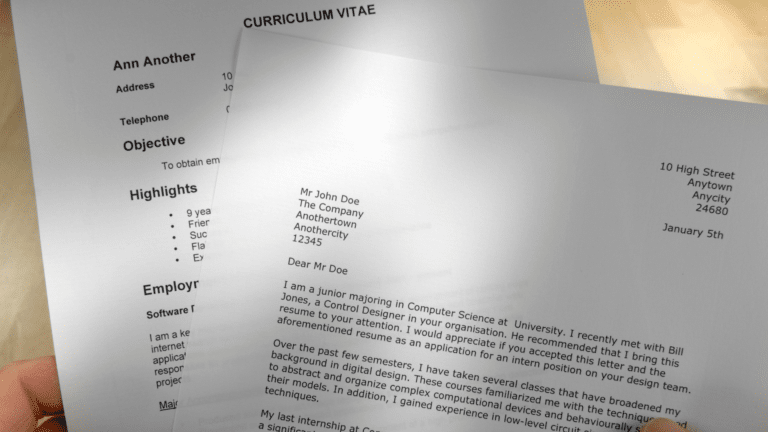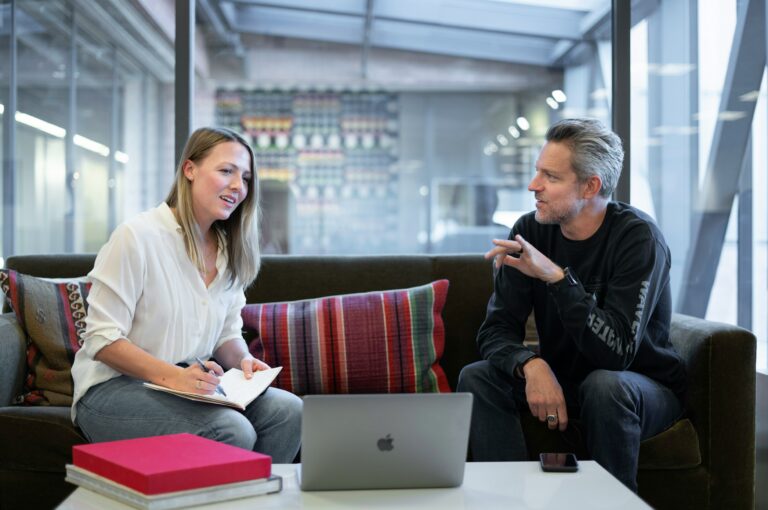If all you’ve been thinking about for the last few days are project manager interview questions, you’ve come to the right place!
Even though you’ve been managing projects for a while, and you are confident in your talent skills, there is always a chance that something will go unexpectedly during your interview.
This guide will help you prepare for (un)expected questions, express your full potential, and show that you deserve the employer’s trust.
So let’s check the project manager interview questions and answer them effortlessly!
What are Employers Aiming to Find Out About You as a Project Manager?
The questions that the interviewer will ask you will vary depending on the industry in which you work. However, every company is aware of what constitutes a competent project manager and will focus the most of its attention on this aspect of the candidate.
Some of the essential qualifications that an employer will look for are:
- Previous work experience. Your previous experience will give the employer an insight into what kind of companies you worked for, the sort of projects you worked on, the types of tasks you completed, etc. It will serve as the employer’s starting point for the remainder of the interview.
- Personality. Potential employers want to know whether your personal qualities are a suitable fit for a role in project management because you will be representing the firm and managing a team of other employees daily.
- Management skills. Most of the questions from the employer will be about your ability to plan, communicate with others, make decisions, solve problems, delegate, and other skills. Prepare yourself!
How to Answer Project Manager Interview Questions
During the interview, the interviewer will ask you behavioral questions to find out if you have been in certain situations and how you dealt with them.
At first glance, it seems simple to answer these questions, but that’s not always the case. You must spend some time getting ready for the interview, but how do you stay out of uncomfortable situations?
The answer is the STAR method.
The STAR method is a way to answer questions that ask you to describe whether you have been in a certain situation and how you handled it. This method was developed by combining the initial letters of the terms situation, task, action, and result, each of which has its unique meaning.
Simply said, when an interviewer asks you to describe how you handled a crisis involving employees, you should use the STAR method to answer by focusing on the:
- Situation. Describe what the stressful situation looked like.
- Task. Explain what your responsibility was in the situation.
- Action. Describe what steps did you take to resolve the situation
- Result. Let them know how your action affected the overall situation after you conducted it.
Project Manager Interview Sample Questions & Answers
Here are some sample questions and STAR method responses:
#1. Describe Your Most Successful Project
Answer example: ”We worked on a very significant project two years ago that required a lot of overtime. Despite our company’s commitment to family values, this led us to start mistreating our employees. Of course, both the company and the project itself were impacted. As a project manager, I saw the issue and provided our client with realistic information about how overtime work impacts our employees and why the outcomes are unsatisfactory. After multiple discussions, we could better allocate time and postpone a few deadlines that weren’t that crucial, which helped our staff feel relaxed and enthusiastic about their job. Of course, I did all of this with the employees’ knowledge and assistance.”
Why this answer works: This type of response will give the interviewer a clear picture of the fact that caring for your employees is at the top of your priority list, that you understand that they are the driving force behind every company and that you are endowed with qualities such as empathy, cooperation, recognizing problems, and solving them.
#2. Have You Ever Handled a Project That Did Not Meet the Deadline Or The Budget?
Answer example: ”When I started working as a project manager, I liked to do a lot of the work myself and show my employees how to do things. I was eager to show what I could do, so I was given a task that had to be done in less time and required me to process complex data. I was still sure I could do it on my own. But Monday was approaching, and I didn’t realize I couldn’t finish the job by myself until it was almost done. But that taught me a big lesson. I got over the idea that I had to do the hardest jobs by myself and decided to ask my two colleagues for assistance. Even though it was the weekend, they agreed. As a result of our work, we finished the task on Monday, building a trusting relationship with each other, and I understood that delegation is a very important way to get things done more quickly.”
Why this answer works: With one honest example, you showed that you recognized how essential it is for a project manager to be able to delegate tasks and build trusting relationships.
#3. What Project Management Tools Have You Used In the Past?
Answer example: “I used a lot of tools that helped me plan better, meet deadlines, share tasks, and keep track of how things were going. After trying out a few different tools, I found that ClickUp works best for me because it has everything we need to complete our projects from beginning to end without any difficulties.”
Why this answer works: The point of this answer is to show the interviewer which project management tools you used, what you used them for, and how they helped you. This goes to show that you really did use those tools. Be prepared for the interviewer to ask you follow-up questions so that he can learn more about the used tools that pique their interest.
#4. What Project Management Methods Do You Use?
Answer example: ”After many years of effort and experience, the Agile approach has established itself as the dominant methodology that I use. I can state that this technique imposed itself organically because it prioritizes effective cooperation with individuals and teams, incorporates clients in the project execution process, and the team can quickly adapt to new situations, indicating that it is adaptable. I’ve spoken with other project managers that utilize different approaches, and I can tell you that the methodology’s application is dependent on your team, the project, and the client’s ideas.”
Why this answer works: This answer shows that you’ve tried various project management methods, discovered one that works for you, and are open to learning more from others.
#5. How Do You Handle Conflicts Within Your Team?
Answer example: “I have a relationship with my employees that gives them some freedom and room to express themselves. On the other hand, we have set up a work environment where everyone follows the rules. We were able to solve any conflicts that might have come up within our team by having both group and one-on-one conversations where everyone could say what they thought and felt about the situation.”
Why this answer works: There will always be disagreements between team members. This way, the interviewer will be able to determine whether or not you are the kind of person who, in tense situations, wants to listen to all of the members of your team and encourages them to come to their own conclusions. In other words, whether or not you are a kind of mediator who wants to restore the natural flow of the work process.
#6. How Do You Handle Team Members Who Are Underperforming?
Answer example: ”My closest coworker was dissatisfied a few years ago. It didn’t harm the company’s profits, but he didn’t perform as he used to, so I had an honest conversation with him. He believed I rarely gave him more complex assignments. After our chat, I realized he was right and that I was taking on too many tasks for myself, even though I trusted him. After that insight, we implemented what we agreed on, and I cannot compare how much better and more efficient our cooperation has become. That was also a lesson for me.”
Why this answer works: You demonstrate how important it is to be able to recognize when someone is not contributing as much as they should, to approach the situation to determine what the problem is, and to make the appropriate decision to solve the problem.
#7. Describe the Last Project You Worked On
Answer example: ”We began working on the development of a smart building two years ago. My first objective was to put together a team of architects who would design plans for a smart building. A green space around the structure was also incorporated into the proposal. This project, which I managed, involved 15 individuals. I made certain that we had meetings every day and that, at the end of the day, we prepared reports and transmitted them to the central headquarters. I delivered reports on the amounts spent to the accountant at the end of each week, with the requirement to create a final report at the end of the project. In addition to ensuring that everything went as planned, I was in charge of the project’s strategy for selling flats. This meant that, in collaboration with the marketing team, we began to promote the smart building in a timely manner.”
Why this answer works: When answering such questions, it is critical to be clear about your project, its aim, your position in it, and your specific responsibilities. In a nutshell, everything you did on that project, and be prepared if the interviewer inquires about specific responsibilities on the project you worked on.
#8. How Do You Prioritize Tasks In a Project?
Answer example: “I had a situation where a non-priority task became a priority. I was able to finish the task that became a priority as well as the other tasks for that day, all because I always organize my work tasks by importance, and I always leave more time in case something comes up. This is how I reorganized and completed both tasks on time.”
Why this answer works: It is important to be clear about your project, its aim, your position in it, and your specific responsibilities. In a nutshell, everything you did on that project, and be ready to answer questions about particular duties on the project you worked on.
#9. How Do You Handle Difficult Stakeholders?
Answer example: “When a problem occurs, the most important thing, in my opinion, is to get involved, gather information in order to understand the problem, listen to the other side, understand it, and act. That’s how I handled a group of unproductive employees who thought we’d fire them once the project that was intended to automate their procedure was completed. I informed them that they would be trained for other positions after the project, which made them feel valued and appreciated again, so they engaged in the work at full capacity and we completed the project.”
Why this answer works: As a project manager, your role is essential when it comes to managing the people who have an interest in the project—stakeholders. With your response, you demonstrate your ability to solve a problem, as well as how you appreciate people around you, and your awareness that understanding and showing respect are important components of successful work.
#10. Have You Had Experience Managing a Remote Team?
Answer example: “We were compelled to organize our firm so that employees could work from home due to the Corona virus. It was difficult at first because we had to entirely modify the way we worked on a daily basis and introduce programs that would allow us to work and communicate. We noticed that our workload decreased at first. For example, the employees worked less, but after we had constructive discussions, we drew their attention to what we noticed and convinced them that this way of working can ensure that they fulfill their business obligations as before while also allowing them to devote enough time to their families, so we were able to overcome the initial difficulties.”
Why this answer works: There are both pros and cons to working from home. So, if something didn’t go as planned, be honest about what you did to fix it and how the employees took it. If working from home has helped the company, that’s great; keep that way of working.
#11. What Skills Do You Believe Are Essential For Project Management?
Answer example: “I believe that by trying to understand everyone’s needs and perspectives on the job, I have developed strong empathy and good communication skills, which make my team feel appreciated and valued. Furthermore, the success of my projects demonstrates my ability to manage and organize my tasks as well as deal with changes and challenges in a timely manner.”
Why this answer works: You’ve outlined your vision of the qualities that a good project manager should have. This way, you demonstrated that you’re confident and a good fit for the position thanks to those skills.
#12. You Are in the Middle of the Project, And You Are Behind Schedule. What Would You Do To Get It Back On Track?
Answer example: “I missed the deadlines for certain tasks, and when the client asked me about the status of those tasks, I arranged a meeting with the team to make sure everyone was aware that there was a problem. Then I redistributed some tasks, ran some activities at the same time, and extended working hours because there was just a brief delay. With an open, honest, and understanding interaction between coworkers, we successfully solved the problem without any delays.”
Why this answer works: No matter how precisely a project is planned and structured, unexpected challenges may happen as it moves toward completion. You showed that you could push through setbacks and complete the project within the given time frame.
#13. How Would You Handle a Client Who is Dissatisfied With the Project Outcome?
Answer example: “I value my client relationships highly. Therefore I do my best to listen carefully to their desires and needs. To ensure that we share the same vision for the final product, I make an effort to maintain open lines of communication with consumers throughout the process. While client complaints are inevitable, I always try to understand what kind of change they want and try to implement their wishes, and offer reasonable alternatives whenever possible. Otherwise, I try to convince the customer that our model fits his demands.”
Why this answer works: Getting new clients and keeping the satisfaction of existing ones are both essential to the success of the company. By showing that you have honest and open communication with your clients shows that you value them and that you are committed.
#14. Do You Believe a Lack Of Experience Will Be an Issue?
Answer example: “It is true that I was assistant project manager on only two projects, but thanks to my initiative on the project, I managed to ensure the flow of funds, motivate employees when it was most necessary, and coordinate their work. I always knew that I would work as a project manager, so I consider this a natural path in my development.”
Why this answer works: Do not let a lack of experience stand in the way of you becoming a project manager. By giving such a detailed response, you have demonstrated that you have the knowledge, experience, and dedication to succeed as a project manager.
#15. What Gives You Motivation?
Answer example: “The fact that I am doing what I was trained for, collaborating with great people, learning, progressing, and gaining new knowledge every day, passing on my knowledge to others, and helping them to progress, allows me to come and go from work with a smile on my face. Also, the dynamism of this job suits my personality type. My goal is that one day, with our solutions and the work of my team, we will make the world a better place to live.”
Why this answer works: These questions will help the interviewer figure out what kind of person you are and what makes you want to do this job, learn new things, and get better. But these kinds of questions shouldn’t be taken lightly, so, as with other questions, be honest and detailed!
Expert Tips on How to Nail Your Project Manager Interview
Here are some experts’ tips that will make you more efficient:
- Research the company. Usually the conditions listed in job descriptions sound ideal. Keep in mind that what you see on paper is only a small part of the bigger picture. Therefore, research your potential employer to learn more about the working conditions, work atmosphere, and company values.
- Professional appearance. Dress for the interview in a professional manner. The first impression you make is important, so dress properly for the interview, have a positive attitude, and be confident.
- Prepare questions for the interviewer. Questioning the interviewer shows your interest in the company. As well, keep in mind that you, as an employee, also need to decide whether the job you have applied for is right for you. So, you should ask questions about the company, how it works, the work environment, and how successful the business is.
- Use relevant working examples. Providing answers through real-life examples makes a strong and distinct impression on the employer. The employer will create a clear picture of you and your way of thinking and behaving in various situations. Your stories also give you confidence because they represent your experience and skills required for this job.
Final Thoughts
Now that you have passed all the key elements of the project manager’s interview questions, you are ready for your next step, the interview!
Remember to research the company you are applying for. Keep in mind specific examples of challenging work conditions and demonstrate how you improved as a result of those experiences. In addition to this, be energetic in the story and show your enthusiasm and readiness.
Lastly, always express your desire to learn new things and develop in your career.
We wish you good luck!












